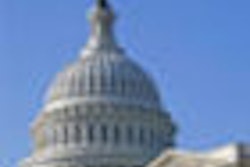A North Carolina newspaper and a nonprofit institute dedicated to improving higher education are questioning the need for a new dental school at East Carolina University (ECU).
An op-ed piece in the Beaufort Observer cites a commentary written by the John W. Pope Center for Higher Education Policy, both of which assert that the notion of establishing a new dental school at ECU is based on a "flawed premise -- that its existence will solve the problem of the 'underserved' population (which) it purports to exist for."
As part of the new dental school, ECU reportedly plans to establish 10 community service learning centers in rural and underserved areas throughout the state. ECU Chancellor Steve Ballard said the community centers represent an important step toward increasing access to dental care in North Carolina.
According to ECU, the state is below the national average in the ratio of dentists to population, and that ratio has declined recently as the population has increased faster than the supply of practitioners. Four North Carolina counties have no dentists at all, and five more counties could soon be without dentists because their dentists have reached retirement age. In addition, 39 mostly rural counties had a decrease in dentists between 1997 and 2007.
However, both the Beaufort Observer and the Pope Center question whether graduating more dentists from ECU will increase the proximity of dentists to sparsely populated counties. They also both dispute whether the issue is a valid state policy objective since most of the state's residents live within an hour's drive to the nearest dentist.
Both opinion pieces claim the bigger issue is Medicaid and the lack of dentists willing to accept such patients because of low reimbursement rates.
The Pope article also questions whether students recruited from rural and underserved areas will want to return and practice in those places given the "huge incentives against working in remote areas."
Additionally, both articles claim that a new dental school is not the best way to increase the supply of dentists, pointing to a 2005 ADA report that found it is more economically efficient to increase the enrollment at the existing dental school at the University of North Carolina, Chapel Hill than to build another school.
The Observer said it would be more cost-effective to contract with private dentists to establish transportation systems for poor residents in underserved counties to take the patients to a nearby dentist rather than spending "$100 million on a new dental school that will cost over $12 million a year to operate."
ECU's dental school plans to admit its first students for the fall semester of 2011. About 50 students will be admitted every year. The North Carolina General Assembly has provided $90 million in funding for construction.
Copyright © 2011 DrBicuspid.com



















